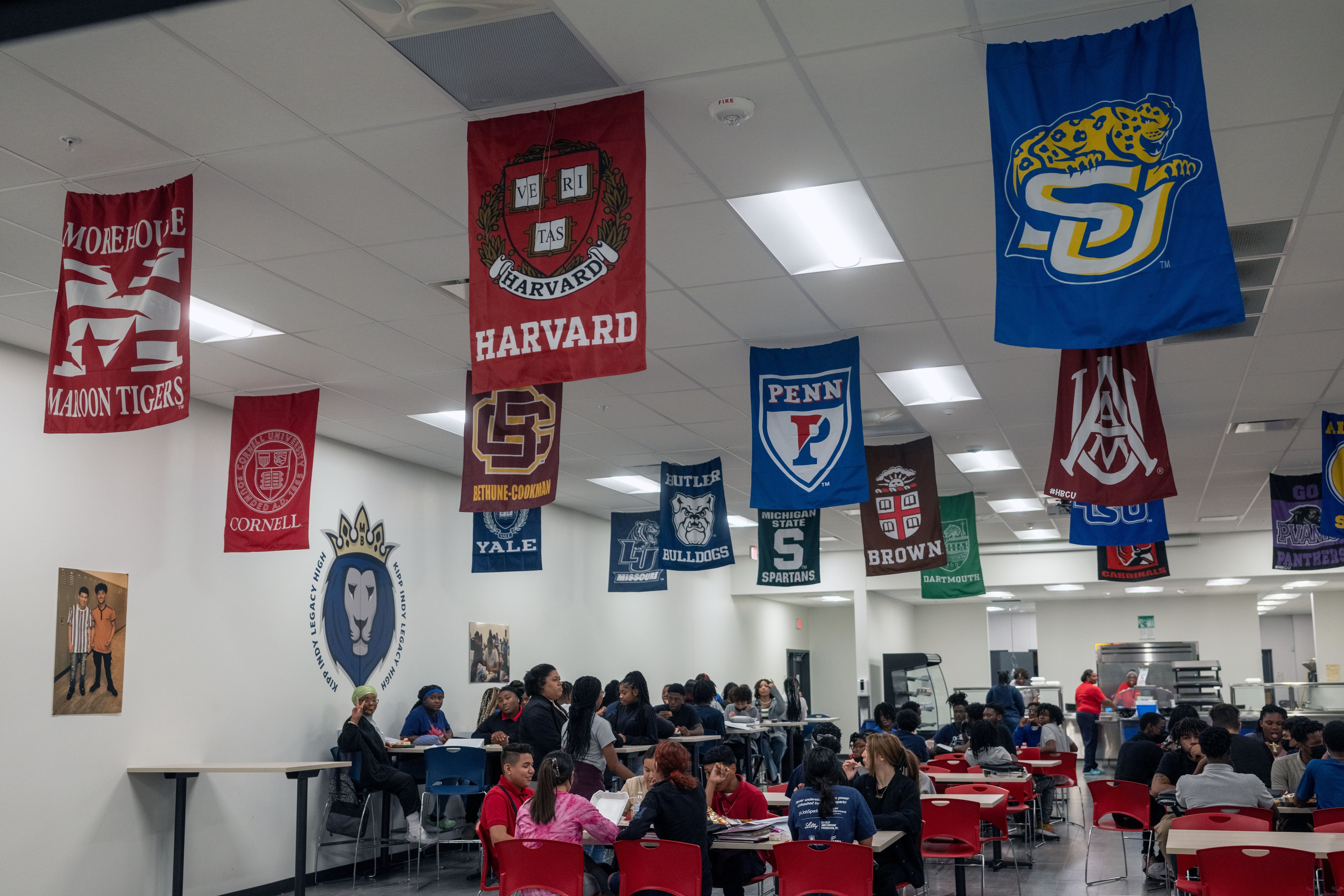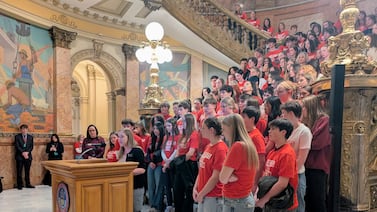Indiana’s 2023 legislative session is under way, and state legislators have introduced more than 100 new education bills and bills impacting schools and students. For the latest Indiana education news, sign up for Chalkbeat Indiana’s free newsletter here.
Starting next school year, Indiana students will be required to fill out the Free Application for Federal Student Aid.
The requirement was approved by both the Indiana Senate and House and signed by Gov. Eric Holcomb on Thursday. It applies to all students, with some exceptions, but is not a requirement for high school graduation.
The new law makes filling out the form, known as the FAFSA, a conscious choice instead of happenstance, advocates said. They added that students would also have a better picture of the money available to them for college, and perhaps convince more students to enroll in postsecondary education, at a time when Indiana officials are concerned about the number of students who enroll in college. In the Class of 2020, 53% of students went on to college, according to state data.
The FAFSA is the form that students need to file to be considered for federal financial aid such as grants, loans, and scholarships, and completion is also considered a leading indicator of college-going.
States and colleges also use the FAFSA to determine eligibility for their respective aid programs. The new law would require students to submit the FAFSA by April 15 of their senior year, which is the deadline to be eligible for state aid in addition to federal aid.
And the money isn’t just for two- and four-year institutions. Filling out the FAFSA can also provide funds for students who want to use a Next Level Jobs Workforce Ready Grant for a short- or long-term credential.
The new law comes at a time when officials said students are leaving nearly $70 million in Pell Grants on the table, amid perceptions that higher education is unaffordable.
A state dashboard of FAFSA completion shows that about 44% of this year’s high school seniors in Indiana have completed a FAFSA.
Lawmakers have tried for years to pass this FAFSA requirement, and it was increasing the number of exceptions that got the bill the widespread support it needed to pass.
The exceptions are for students at certain nonpublic schools, and for students who have a parent sign a waiver (emancipated minors can also sign it for themselves) to decline to complete the form. A school principal or counselor can also waive the requirement if they are unable to reach the student’s parent or guardian by April 15 after “at least two reasonable attempts.”
Additionally, the requirement expires in 10 years, so lawmakers can reevaluate it. Indiana joined at least eight other states who have such a law.
This year, the deadline for state aid was extended to May 15 for students in the seven counties under a disaster emergency declaration due to recent storms: Benton, Johnson, Monroe, Morgan, Owen, Sullian, and White.
MJ Slaby oversees Chalkbeat Indiana’s coverage as bureau chief and covers higher education. Contact MJ at mslaby@chalkbeat.org. Chalkbeat Indiana partners with Open Campus on higher education coverage.






